Another country announced that it will be on the blockchain legal digital currency, it will not be the last one
Last week, the Republic of the Marshall Islands (RMI) officially revealed that the upcoming national digital currency SOV can be obtained through reservations.
The Republic of the Marshall Islands, David Paul, said on Wednesday that the national digital currency SOV will take about 18-24 months, and it may be officially launched in a shorter period of time. Anyone in the world can register on the booking website.
This is reminiscent of the world's first national digital currency, Petro, launched in Venezuela last year. The coin is value-locked through “50% oil, 20% gold, 20% iron, 10% diamond” to address the hyperinflation and near-collapsed currency system in Venezuela.
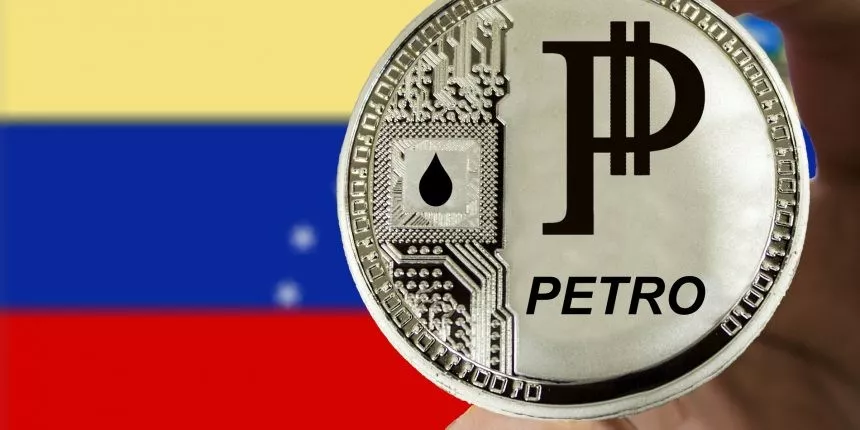
- Bitcoin | Inbound capacity issues in lightning networks
- Bitcoin's power and difficulty are rising, and high-coin prices are rising, attracting new influx
- Babbitt column | Ren Zhengfei talks about "coin" for the first time, the world has no confidence in the dollar
It is almost a year since the launch of Petro (Petro), and Venezuela's hyperinflation seems to have not been much relieved. According to statistics from the Tradingeconomics website, inflation rates in Venezuela in March, April and May this year were as high as 329,568%, 329,568% and 815,194% respectively.
The upcoming national digital currency SOV of the Republic of the Marshall Islands will not repeat the mistakes of Venezuela, and finally end up with an "ideal is full, realistic and very skinny" ending?
The use of encrypted digital currency to rule the entire "state" of the monetary system, in fact, there are precedents, how is this precedent "state" now developing?
Today, let's get to know each other.
01 Digital Marsh Road of the Republic of the Marshall Islands
The Republic of the Marshall Islands (RMI) is an island nation in the central Pacific Ocean. It consists of 1,225 island reefs with a total population of less than 70,000 and a land area of approximately 181.3 square kilometers with an average elevation of only 2 meters.
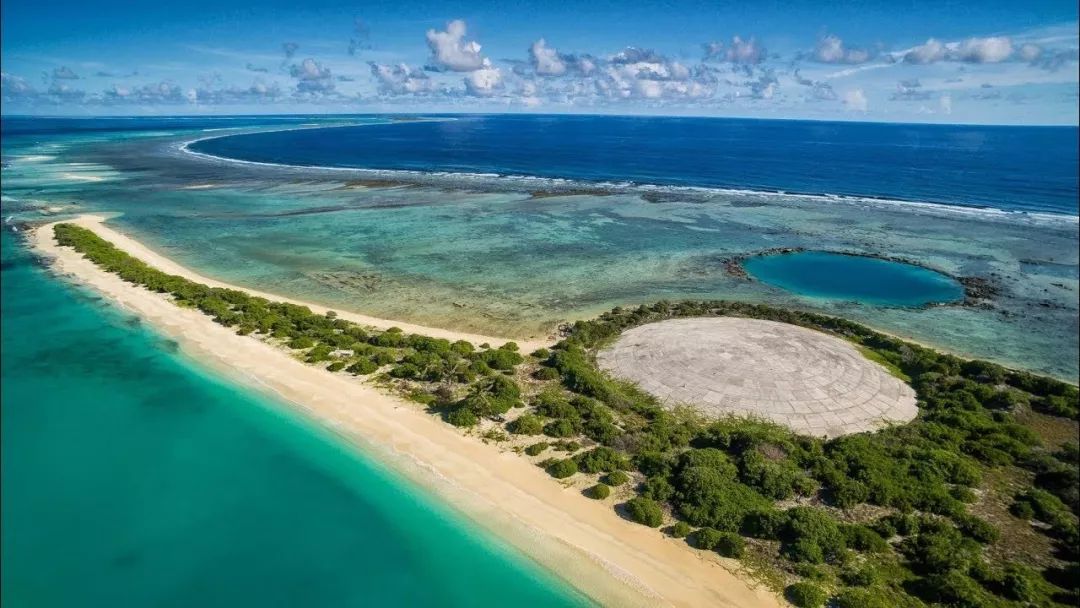
The Republic of the Marshall Islands is very backward in economy. It has long relied mainly on foreign aid. Its fiscal revenue mainly depends on loans and assistance from countries and international organizations such as the United States and Japan.
Since its inception, the Republic of the Marshall Islands has been using the US dollar and has no sovereign currency.
On February 26, 2018, the Republic of the Marshall Islands passed the Sovereign Currency Act, announcing that it will introduce a new national digital currency SOV (full name Sovereign) based on blockchain technology.
The use of blockchain technology to launch sovereign currencies will undoubtedly raise regulatory concerns. The social giant Facebook wants to launch Libra, the encryption stable currency in the world, which has been hampered by the United States, the European Union and other countries. Moreover, the Republic of the Marshall Islands is going to introduce sovereign currency and allow anyone in the world to buy and hold it.
In September last year, the International Monetary Fund (IMF) explicitly raised objections to the National Digital Money Program of the Republic of the Marshall Islands, saying that the introduction of the national digital currency would “add risk to the soundness of the macroeconomic and financial systems”. The Fed even bluntly said "do not like the SOV plan."
However, after nearly a year of internal discussions, the Minister of the Republic of the Marshall Islands, David Paul, said that the United States had nodded and agreed that the project could be tried.
Some time ago, the Republic of the Marshall Islands launched the national website of the National Digital Currency SOV. David Paul explained that one of the main reasons for making a reservation is to understand the liquidity level and market interest of SOV , a cryptocurrency.
02 National Digital Currency SOV
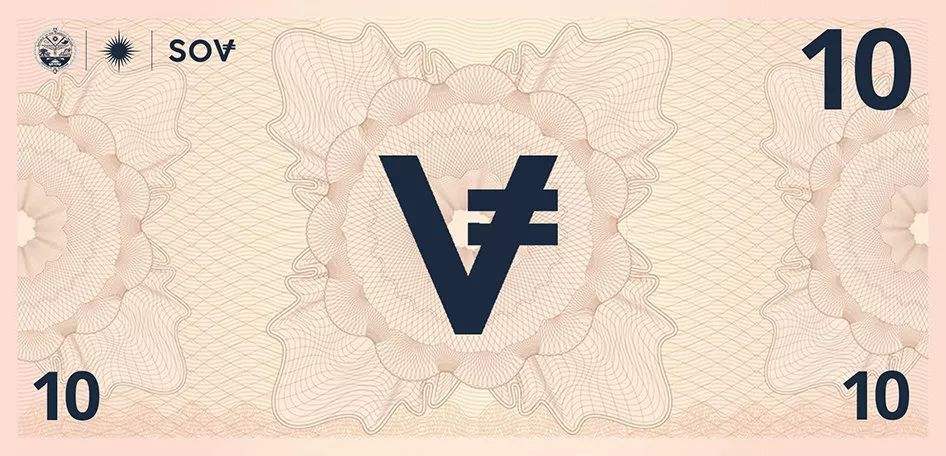
According to the SOV booking website information and white papers of the Republic of the Marshall Islands, we can get the following key information:
1. National digital currency based on blockchain technology
According to the white paper, SOV is a decentralized digital currency based on the SOV blockchain. It is a sovereign currency introduced by the Republic of the Marshall Islands and functions like the sovereign currency of other countries. Moreover, compared with the sovereign currency of other countries, SOV is also fair, equitable, safe, easy to use, low-cost, open and transparent.
2. 4% increase every year, shared by SOV holders and outbound nodes
The SOV blockchain belongs to the “chain of alliances” led by the Republic of the Marshall Islands. The nodes need to be certified and approved before they can become nodes. When the number of approved nodes exceeds 21, the SOV holder can choose which nodes can become the outgoing nodes by continuous voting. This is very similar to EOS.
With reference to global GDP, the annual growth rate is about 4%, SOV is also issued 4% per year, and the portion of the issuance is distributed to nodes and SOV holders.
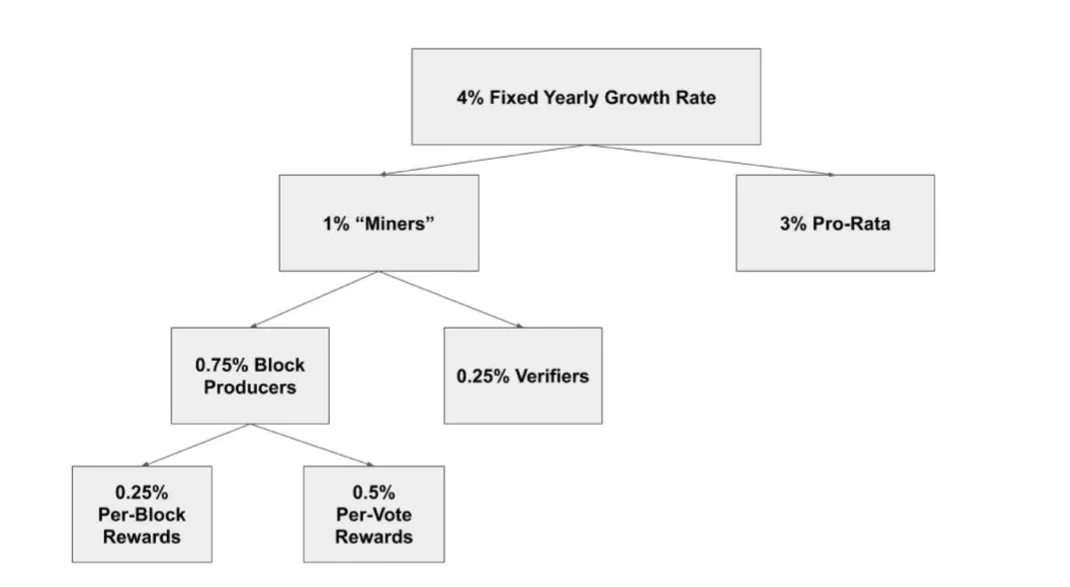
SOV issues an additional 4% annual allocation, source: SOV White Paper
3, the initial amount of 24 million, pre-sale 40%
The initial volume of SOV is 24 million, of which 40% are scheduled for the world. Since SOV has not yet been officially launched, investors who participate in the booking will get TRMI first, and after SOV is officially launched, they can exchange TRMI for SOV.
4, can be used after verification
Unlike other cryptocurrencies such as Bitcoin, the use (receive, send, trade) of SOV requires prior authentication and an SOV ID is assigned after authentication. In other words, you can't create a valid wallet address directly like Bitcoin.
In addition, the white paper highlights two major categories of risks for SOV:
1. As an island country, the economy of the Republic of the Marshall Islands is relatively fragile, and the introduction of digital currency may bring risks to the country's economy and finance.
2. The risks that SOV may be exploited by criminals.
In any case, the use of blockchain technology to launch sovereign currency in the Republic of the Marshall Islands is a meaningful exploration for the entire blockchain industry.
03 precedent: sovereign currency is cryptocurrency
Many people may not know that there is really a "state" in the world that is built on the blockchain. The sovereign currency is a cryptocurrency, with its own land, national flag, constitution, state institutions, diplomatic ambassadors, and so on.
This "country" is called the " Free Republic of Liberland ".
The Liberal Free Republic, located on the border of Serbia and Croatia on the border of Europe, has a land area of only 7 square kilometers and is the third smallest country in the world (the top two are the Vatican and Monaco).
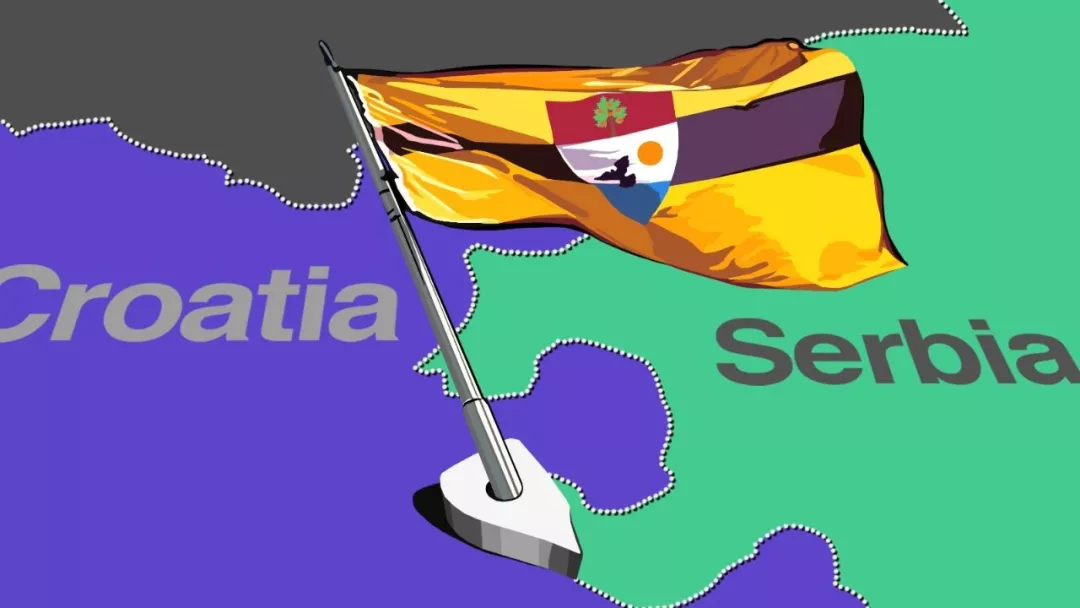
In the 1990s, after the disintegration of Yugoslavia, this 7-square-kilometer land was kept on hold and abandoned due to territorial disputes. It became a land of no ownership and no one lived.
On April 13, 2015, a liberal named Vít Jedlička discovered this land of nowhere, so he immediately announced “sovereignty” and established the Liberian Free Republic.
The Liberal Free Republic also has its own slogan and philosophy of governance: To Live and Let Live . Based on this concept, the Liberal Free Republic has enacted its own constitution, and at the same time established its own national institutions and diplomatic ambassadors, designed the national flag, the national emblem and so on.
Because of its spirit of pursuing freedom, the Liberal Free Republic was brought to the attention of liberals around the world. A large number of liberals have applied for their nationality.
There are two types of citizens in the whole country. One is a citizen living in this country and the other is an online citizen. According to the official website, up to now, the number of local citizens has reached 1,000, and online citizens have reached more than 500,000.
The sovereign currency of the Liberian Free Republic is Liberland Merit, a cryptocurrency based on blockchain technology. At the same time, since its inception, the Liberal Free Republic has also received donations such as BTC, ETH, BCH and other cryptocurrencies, as well as traditional financial methods such as bank card transfers.
According to the blockchain browser data, up to now, BTC donations received by light reached as high as 270 BTC, and most of the BTC donations occurred between mid-2016 and mid-2017.
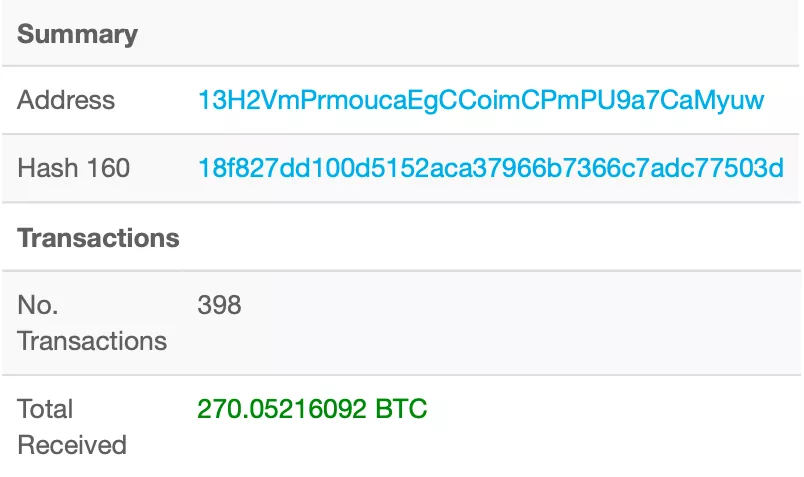
So, what is the current development of the “state” based on blockchain technology to launch sovereign currency?
According to the "Summary Annual Report 2018" released in April this year, we can see that since most of the assets of the Liberian Free Republic are cryptocurrencies , the overall assets have shrunk severely due to the bear market in the 2018 cryptocurrency market. It is denominated in US dollars, and it is not even enough to make ends meet in 2018, resulting in a fiscal deficit of about $45,500.
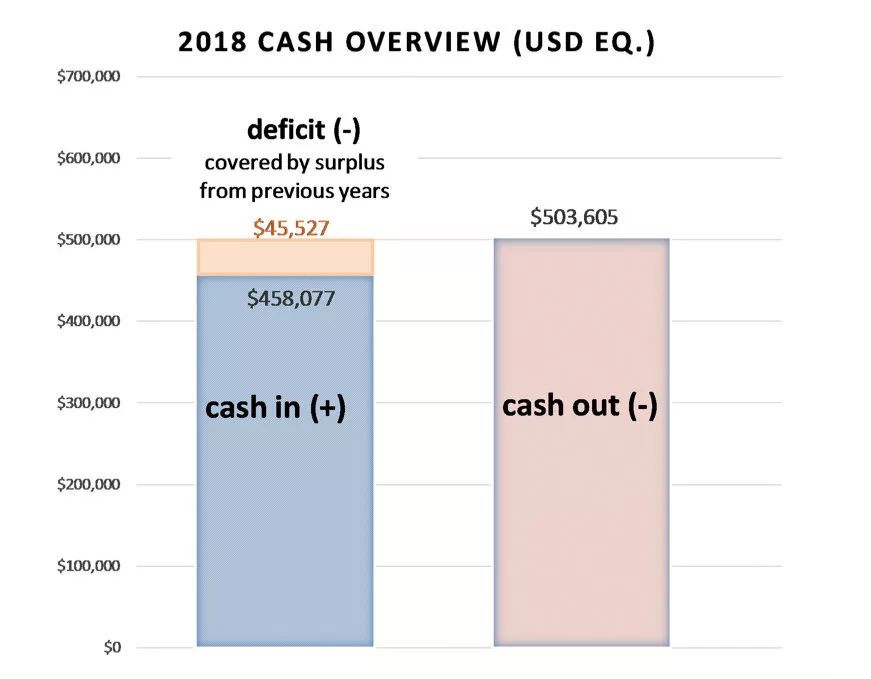
It should be noted that the Liberal Free Republic has not yet been officially recognized by the UN member states, and only a few regions (states) have recognized their sovereignty.
04 summary
With the continuous development of blockchain technology, more and more countries are considering the national digital currency based on blockchain technology. China is also one of them, and is in the forefront of the world in the development of digital currency.
Unlike decentralized cryptocurrencies such as Bitcoin, the “consensus” of national digital currencies is based on national credit.
The Venezuelan oil coin did not solve its domestic hyperinflation well, nor was it fully recognized by the domestic people. The use of cryptocurrency such as Bitcoin and keyword search remained high in Venezuela. The reason is still the public. Distrust of the Venezuelan state.
The sovereignty of the Republic of the Marshall Islands, which attempts to use blockchain technology, will eventually be recognized by the public. It will become a currency that is used as frequently as the US dollar. It will repeat the mistakes of Venezuela, and everything will be tested by time.
But in any case, these are useful attempts for the blockchain industry.
Message mining : Do you expect national digital currency? why? Feel free to share your opinion in the message area.
——End——
『Declaration : This article is the author's independent point of view, does not represent the vernacular blockchain position, and does not constitute any investment advice or advice. You are not allowed to reprint this article by any third party without the authorization of the "Baihua Blockchain" sourced from this article. 』
Author: JackyLHH
We will continue to update Blocking; if you have any questions or suggestions, please contact us!
Was this article helpful?
93 out of 132 found this helpful
Related articles
- Dry goods | Central Bank Digital Currency Events
- Sudden! OKEx Korea will remove 5 kinds of anonymous coins, or related to the new FATF regulations.
- Viewpoint | Bitcoin Volatility Misunderstanding: Volatility does not mean that it cannot be a good means of storing value
- QKL123 Quote Analysis | Black Swan Event, Helping Bitcoin Quotes (0916)
- How does Vitalik evaluate Ethereum Eco-Privacy, DeFi and Ethereum 2.0?
- A picture to understand the world currency and market
- Is DeFi a flash in the pan? Fund big coffee Pomp believes that automation finance is the future






